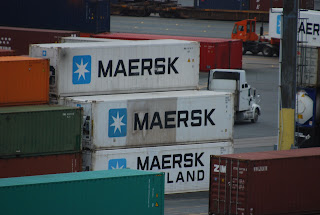- people and nations trade to improve their standard of living
- trade is voluntary
- trade will only occur if both sides expect to gain something
- a nation will import if world price < domestic price
- a nation will export is world price > domestic price
- allows nations to specialize in what they do best
short and sweet: free trade makes everyone better off
but....

Barriers to trade
tariff: excise taxes on imported goods
- revenue tariff: taxes on imported goods not produced domestically in order to raise revenue for the federal government.
- protective tariff: tax designed to shield domestic producers from foreign competition

 nontariff barrier: licensing requirements imposed on domestic importers of foreign goods.
nontariff barrier: licensing requirements imposed on domestic importers of foreign goods. quotas. By restricting licensing, governments can restrict imports.

voluntary export restriction: voluntary limitations agreed to in the hopes of avoiding more stringent trade barriers.
Quota: legal limit placed on the amount of a good that can be imported in a given year.

Effects:
- quotas generate revenue for foreign producers by keeping prices high.
- tariffs generate revenue for the domestic government.
- in both cases, the prices for domestic consumers are higher.
- limit potential gains from trade
- protect domestic sellers and the expense of domestic buyers

- reduce efficiency in the allocation of scarce resources
- (slows economic growth!)

